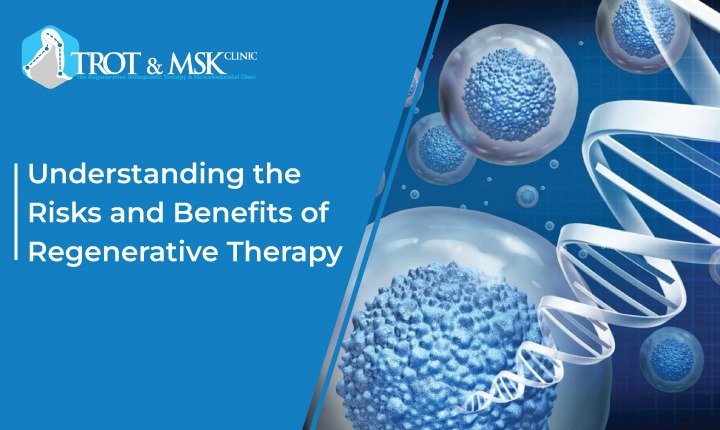Regenerative therapy involves different techniques whose main idea is to replace or restore damaged tissues and organs. However, these techniques are really fast picking up in modern medicine, from stem cell therapy to tissue engineering, and therefore have the possibility of influencing natural healing by the body. In this regard, knowledge of risks and benefits will prove to be very important, as with all new medical approaches and Dr. Shohab Hyder Shaikh offers expert regenerative therapy in Karachi, combining advanced techniques with personalized care. Continue reading this article to learn more about it.
Regenerative therapy: What is it?
Regenerative therapy involves the use of advanced biological methods to regenerate damaged or diseased tissues. Some of the techniques include stem cell therapy, platelet-rich plasma treatments, and gene therapy. The general goal is to restore normal functions to the damaged parts of the body and improve healing processes and quality of life for patients suffering from numerous conditions.
Benefits of Regenerative Therapy
The following are the benefits of regenerative therapy:
Healing and Repair
The greatest advantages of regenerative therapy lie in its ability to treat injured tissues and organs. For instance, in osteoarthritis, spinal cord injury, and heart diseases, it may be helpful in promoting tissue regeneration through stem cell therapy. Additionally, a patient may also respond better to the body’s natural healing powers than with more traditional treatments.
Reduced Need for Surgery
There is sometimes a substitute for such invasive surgical procedures in regenerative therapies. For example, PRP therapy can be used in orthopedic medicine to treat injuries and promote healing without needing any surgery. This can thus lead to shorter recovery times and less overall physical stress on the patient.
Personalized Treatment Options
Generally, regenerative medicine provides a treatment that is more personalized according to the patient’s needs. Using cells derived from the patient’s own body reduces the risks of rejection and can be made individually tailored according to the specific biology of the patient.
Potential for Long-Term Solutions
Instead of traditional conventional treatments, regenerative therapies are trying to have patients heal from within. It can work toward long-term solutions rather than short-term fixes on a very different spectrum for various health conditions.
Risks of Regenerative Therapy
Unproven Efficacy
Most of the regeneration therapy is still in its experiment stage, and in terms of efficacy, is never well-established. For treatments that are promisingly performed in clinical trials but cannot be approved for full wide-scale use, patients have been advised to be on the cautious side and, rather, ensure they only acquire therapies supported by the establishment of solid scientific evidence.
Complications Involving
Similar to most medical treatments, complications characterize stem cell therapies. For instance, the introduction of stem cells via injection exposes patients to infections and other adverse immune responses, tissue injuries, or such reactions that may result from it. This makes a patient take risks by putting himself or herself at risk before consulting their healthcare provider before the treatment. So, consider the complications before getting it.
Regulatory Problem
The regulatory environment surrounding regenerative medicine can be rather complex. Some treatments are not yet FDA-approved, and some patients will find clinics offering unregulated therapies that may be ineffective or cause harm. Importantly, treatments from well-established sources and concerns about the legal and ethical implications of these treatments should be looked into.
Cost and Accessibility
While promising, these regenerative therapies are often expensive and not covered by insurance. Such costs can significantly limit access for many patients who might benefit from these advanced treatments. This can lead to disparities in who can receive these therapies.
Ethical Considerations
One major issue with cell sourcing regarding regenerative medicine and mainly in stem cell research concerns embryos, which raises the concern about ethical acceptance in which it is sometimes very confusing for the public to clearly view and embrace particular types of therapy. This should not be a complex affair that patients have to look at and deliberate about which option has what moral reason to treat them.
Conclusion
Modern medicine is the terrain on which hope and caution clash. The potential benefit of healing an injury, improvement in rescue treatments, and possibilities for personalized options for a remedy-is significant. However these considerations must not be obscured: risks include unproved efficacy, potential complications, and ethical concerns.








